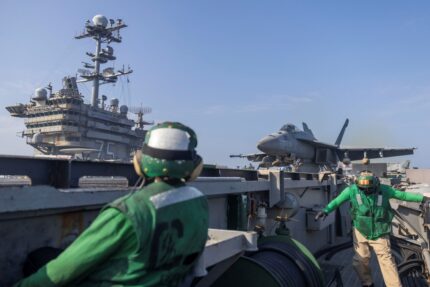U.S. President Donald Trump announced that he had ordered military airstrikes against a senior attack planner and other key members of the Islamic State (IS) group in Somalia. According to Trump, the operatives were hiding in caves and posed a direct threat to the United States and its allies.
“These killers, who we found hiding in caves, threatened the United States and our Allies,” Donald Trump stated in a post on social media. “The strikes destroyed the caves they live in, and killed many terrorists without, in any way, harming civilians.”
The airstrikes were conducted in the Golis Mountains, a known stronghold for IS fighters in northeastern Somalia. While Trump did not specify the names of those targeted, U.S. Defense Secretary Pete Hegseth confirmed that multiple operatives were killed and that initial assessments showed no civilian casualties.
Somalia Welcomes U.S. Support Against Terrorism
The Somali government has expressed its gratitude for the U.S. intervention, emphasizing the importance of their partnership in combating extremist threats. In a statement posted on X (formerly Twitter), the office of Somali President Hassan Sheikh Mohamud acknowledged “the unwavering support of the United States in the fight against international terrorism” and welcomed the continued commitment under Trump’s leadership.
Additionally, the regional government of Puntland, where the strikes took place, thanked international allies for their role in eliminating high-ranking IS members. Puntland authorities have long battled jihadist insurgents in the region and see such operations as vital to weakening IS influence.
IS in Somalia, which emerged in 2015 as a breakaway faction from the al-Qaeda-linked al-Shabab, is notorious for extorting local communities and launching sporadic attacks. However, its influence remains limited compared to al-Shabab, which continues to be Somalia’s dominant militant group.
Donald Trump Criticizes Biden, Highlights Decisive Action
Donald Trump used the announcement of the airstrikes to criticize the Biden administration, accusing it of failing to act swiftly against the targeted IS planner. “The U.S. military had targeted this particular IS planner for years, but Joe Biden and his cronies failed to get the job done. I did!” Trump declared.
His remarks highlighted the ongoing debate over U.S. military strategy in Somalia. During his first term, Trump ordered similar strikes but also withdrew hundreds of U.S. troops from the country in late 2020. Biden reversed that decision in 2021, re-establishing a military presence to support Somali forces against IS and al-Shabab.
Despite his firm stance against IS, Trump has long maintained that the U.S. should avoid prolonged military entanglements overseas. However, Somalia remains a unique case due to persistent threats from extremist groups and the U.S. government’s long-standing investment in the country’s stability.
The Future of U.S. Policy in Africa Under Donald Trump
Trump’s approach to Africa in his second term could be shaped by geopolitical considerations beyond counterterrorism. While his first term saw a relative de-prioritization of African affairs, Donald Trump’s second term may focus more on countering China and Russia, which have expanded their influence on the continent through trade and military partnerships.
His former defense secretary, Mark Esper, wrote in his memoir that Trump “didn’t see much value” in maintaining a U.S. military or diplomatic presence in Africa. This sentiment raises questions about whether Trump will sustain long-term engagement in Somalia or shift towards a more isolationist stance.
For now, the recent airstrikes indicate that Trump is willing to use military force against terrorist threats. However, whether this translates into a broader strategy for U.S.-Africa relations remains to be seen.














